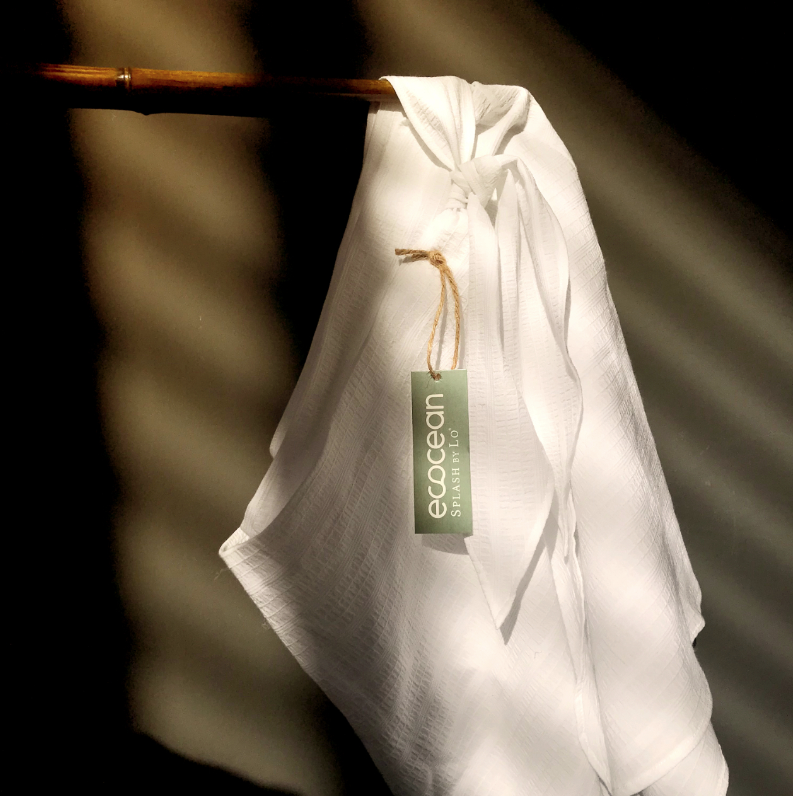Have you ever thought about the consequences of the production, elaboration and consumption of fashion today?
The need to talk about textile recycling and less pollution is extremely important now more than ever. It is essential to begin to consider stopping and rethinking the way fashion is consumed and produced. Think about sustainable fashion today!
One way to make the change is to consider recycling, the modalities in the production and preparation of them, whether in fabrics or garments, since tons of textile waste generated by the fashion industry are produced.
The fashion industry
The biggest problem in the fashion industry stems from ‘textile waste’. Millions of tons of textile waste are deposited in landfills coming from the disposal of waste and garments from the production of the fast-fashion industry.
Yes, some things are unavoidable, but the real problem is that most of these discarded garments are not natural or organic, causing a negative impact on our home, the environment. These tissues take thousands of years to decompose, and not only does it end there, but in doing so they also release thousands of micro-plastic particles, a real nightmare.
For this reason, the fashion industry is taking a 360 and heading towards the zero waste movement. Recycling, in addition to more sustainable manufacturing, plays an extremely important role in seeking to optimize the management and administration of waste on the planet.
At Splash by Lo, we are not the exception, since we know the importance and the impact that it transfers to our home.
How can you contribute to reducing the impact of ‘textile waste’?
So, knowing this, how can you contribute to reducing the impact of ‘textile waste’? Buying garments that make recycling or sustainable, organic and biodegradable fabrics. The textiles that can be recycled are polyester, cotton, nylon, and wool and we will explain why. Recycled polyester fibers are made from recycled bottles (PET), industrial waste, and even clothing.
Although these fabrics are not made from natural or biodegradable fibers, they generate 54% less CO2 emissions and consume 70% less energy to manufacture compared to raw polyester.
Recycled cotton, its greatest benefit, is the way it optimizes natural and energy resources. Knowing that the natural fiber is cotton, tons of chemical pesticides and tons of water are used to care for its crop, if it is not organic. What is in question is the mass production of it. Recycled nylon is similar to recycled polyester, again, as it is not a natural fiber that takes time to break down, it is better than using virgin nylon. Most of this fiber is made from the recycling of fishing nets that are discarded in the ocean, as well as rugs and nylon stockings.
Finally, recycled wool is another great alternative because in addition to preventing it from being disposed of in landfills, it saves spending on chemical products and tons of water that are used in its manufacture.
At Splash by Lo we believe that a change towards a sustainable textile industry is possible, our contribution, our recycled fabrics.
That is why our Ecocean line was born, our commitment to sustainability. We are dedicated to offering environmentally responsible proposals and we help our clients to create sustainable bathroom collections, because working together we can create a great impact.
We use a variety of recycled polyester, recycled polyamide and eco-friendly viscose fabrics. Our polyester printing process is environmentally friendly since, in addition to printing dry (without using water), the inks we use are ecological and certified.
Recycled polyamide is our fully recycled polyamide knit fabric produced from waste from the company’s main production cycle. We have a mechanical regeneration system that allows us to avoid the use of chemical materials for fiber production.
Finally, the ecological viscose, made with Ecovero viscose, a fiber that is certified with the EU ecological label for meeting high environmental standards throughout its entire life cycle. All our recycled fabrics are woven and printed close to us, thus contributing to the reduction of factors connected to global warming and pollution.
The future of the industry belongs to companies that put sustainability and creativity first. As a society we face the challenge of rethinking our consumption habits. As a company we passionately feel the need to play an active role and contribute to the transformation of the textile industry towards a new sustainable and environmentally friendly era.
The future
The future is now and one of our main objectives. Meet our line of recycled fabrics and be part of the change.

